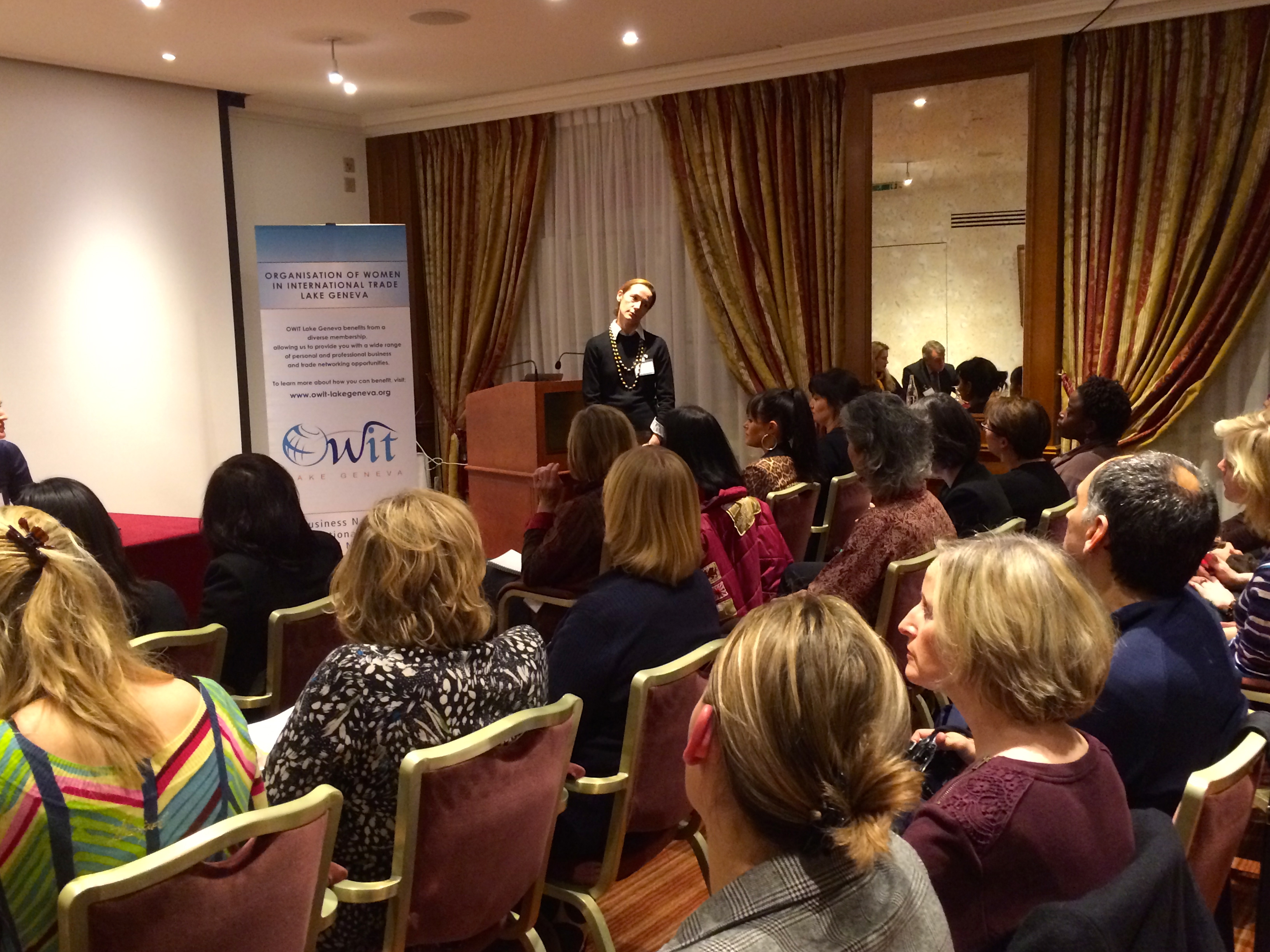
Upon reading this title some or many of you were probably wondering what this event was going to be about. Impact investing is about how to generate social impact and get financial returns. And the sub title quickly clarified the scope of the evening:
“Ethical trade - The challenge: working women and their communities”.
The evening started off by our moderator
Andrea Delannoy who presented our panellists and in turn each of our panellists had prepared a few words to share their thoughts on the topic at hand which already promised a lot for the discussion to come, but first we watched
“The unpaved silk road” a short documentary produced by OlaRe. OlaRe works with “small artisan and weaving communities, and actively searches for those who haven’t received external support”. The organization “mediates between two worlds: (1) the demands and tastes of modern women in Europe and the US, and (2) the practices and culture of silk artisans in a developing Asian economy”*.
OlaRe’s founder Zsuzsa Hutton states: “we are no different from the women in the movie; women are the glue in communities and societies. Women are the glue that keep communities together and investing in women is investing in the future”. This was one of the main schools of thought of the evening. We all should be more conscious about the buying choices we make and also as Zsuzsa explained we should “follow the chain and see into whose hands the money goes to” as many women do not get to reap the benefits of their hard labour and return on investment is low to non-existent.
This point was emphasized by Meg Jones, our OWIT woman of the year, who said: “look at who receives the money, trace the money back, raise awareness, it’s not about the product but about the people”. And our third pannelist Arthur Wood remarked that “there is a big growth in youth populations and we need to empower societies with entrepreneurism, decrease government aid, and beware that how we consume drives companies”. And that we need to “recognize that people need to own the process”.
It shall be clear that the evening was much too short for such an interesting and fascinating discussion on this contemporary topic. And during the networking part after our panel discussion many conversations were still had on the this topic.
This evening’s discussion has provided quite some food for thought, when was the last time you actively wondered where the money you spend goes to? Does it go into the hands of multinational corporations or actively finds its way back to that one female entrepreneur working hard to provide for her family while fighting to sustain a small family business? Most of us are all guilty of choosing price over quality and ethical trade, but in order to help change the livelihoods of many small communities all around the world you should keep in mind that the power is in your hands**.
*www.olare.org
** www.standardsmap.org